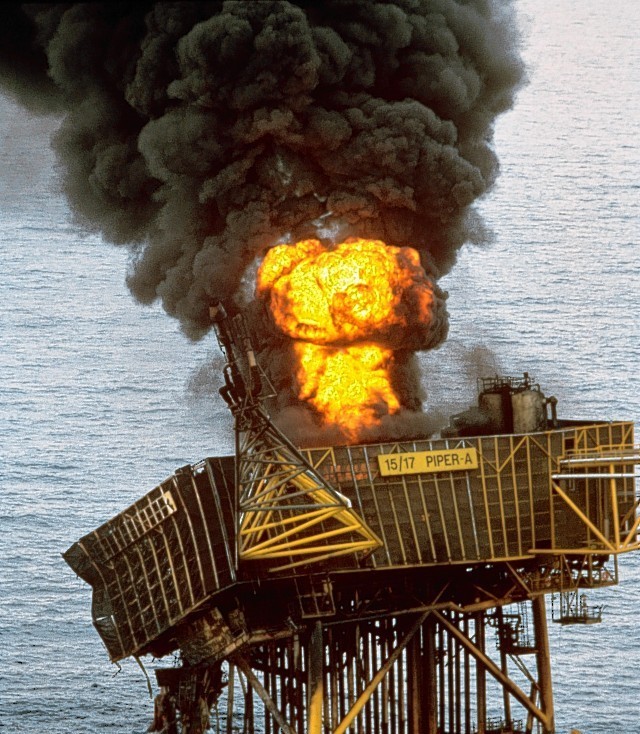A former oil industry worker has launched a search to gather the thoughts and memories of those affected by the Piper Alpha disaster.
Aberdeen University PhD student Rod Nicol, 33, is undertaking a social history examination of the background and mythology of the North Sea tragedy that he hopes will focus on the human impact and its effect on the “folk memory” of the people who have been directly and indirectly affected by Piper Alpha.
The disaster saw 167 offshore workers lose their lives in July 1988 and left an indelible imprint on the North Sea oil and gas community, aswell as having a profound effect on shaping the global industry.
The Cullen Inquiry, published in 1990, laid out a blueprint for how the industry had to change in the aftermath of the catastrophe and is widely regarded as the most significant single pieces of work to advance the health and safety culture offshore.
Fire in the Night: The Piper Alpha Disaster by Stephen McGinty has also been widely praised for its comprehensive telling of the stories of those who perished on board the Occidental platform and documentaries have also covered the story extensively.
Professor David Alexander, former director of the Aberdeen Centre for Trauma Research at Robert Gordon University, carried out a study into the long-term psychological and social effects in 1998.
Mr Nicol said he wanted to hear from those people who didn’t necessarily have a direct link to the tragedy.
He said: “When we talk about the oil industry, it’s often as a purely technical thing for businessmen and engineers, but it involves people’s social and cultural lives and affects people’s lives.
“I ended up working in the oil industry for eight or nine years and this story is just so universal and so well known. As soon as you say the words ‘Piper Alpha’, you get a reaction from people and you can’t really tell the history of the North Sea oil industry without talking about it. It’s part of folk history of the industry, of Scotland, and of the UK.
“From an academic point of view, I am interested in how stories make sense of the past and present and relate it to their lives today.”
“It’s not my story I want to do, I want to hear other people’s stories. I think we’re at a stage where it’s about to pass into an ‘official’ account, and it is being considered as part of the school syllabus and something that is in history books.
“The folk history aspect is something that could be forgotten unless someone makes an effort to record it – as long as people are willing to talk about it.”
“There is a bigger, social interest in preserving those memories, not just about Piper Alpha, but about the industry itself.”
Nicol believes that the recent downturn in the North Sea finds the industry nearing the end of a chapter.
He said: “Right now, there’s a lot of reflection on how oil has changed the culture and community of the north east of Scotland – there have been two or three generations who have known nothing but oil and gas. Piper Alpha is a very powerful focal point for a lot of people.”
“Cullen looked at the industry and what could be learned from Piper Alpha. There’s been quite a bit of work on the survivors’ stories, which are amazing and really moving. I am not trying to replicate that.
“What interests me are those who may have been affected by it in a more indirect way.”
But is there anything more to learn about Piper Alpha? Nicol believes there is.
He said: “The really big thing about this is the community engagement, and giving people the opportunity to contribute before it becomes official history. There’s still this folk history in Aberdeen that’s really strong and I think it’s important to record it now.
“It’s nearly 30 years since it happened, but I feel Piper Alpha is still part of everyday conversations. In 10-15 years, that may not be the case.”
Nicol understands that it may take 12-18 months to interview scores of interviewees, but he believes it will be worth it.
He added: “At this stage, I want to hear from as many people as possible and I want people to be comfortable sharing their stories and thoughts.”
Anyone wishing to contact Rod Nicol can do so at: northsea.piper@gmail.com
